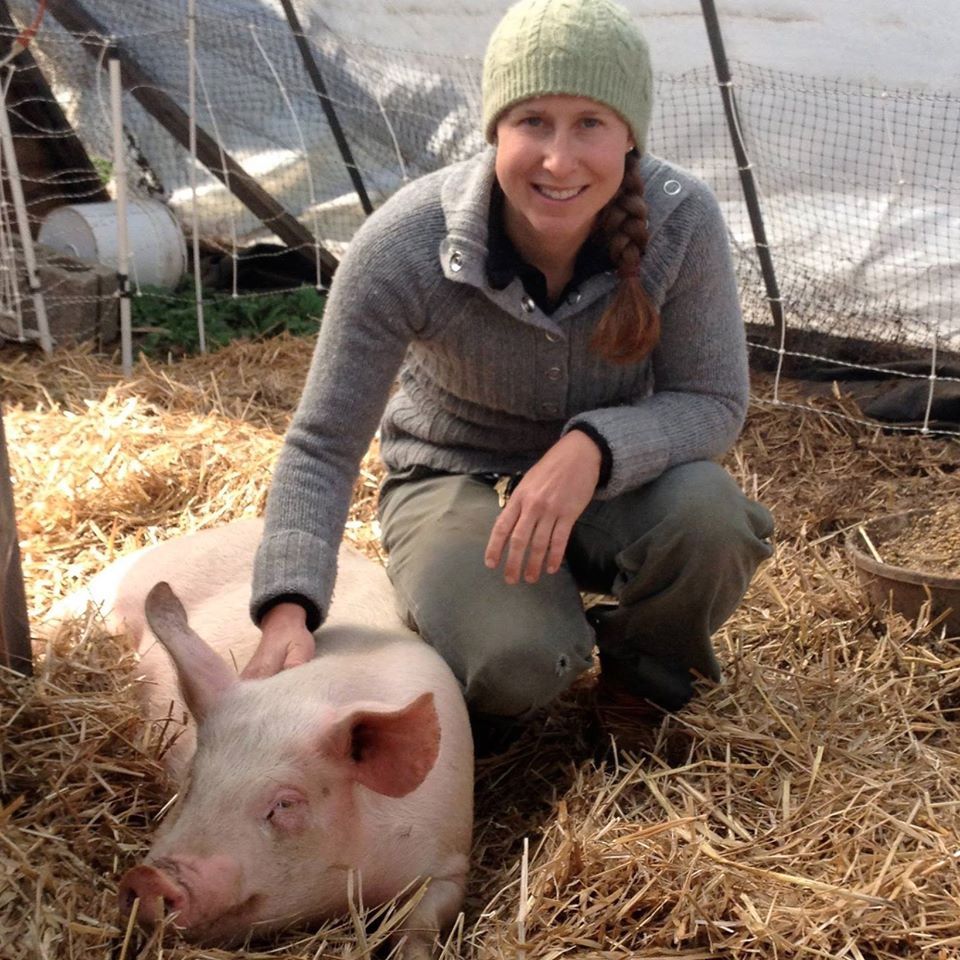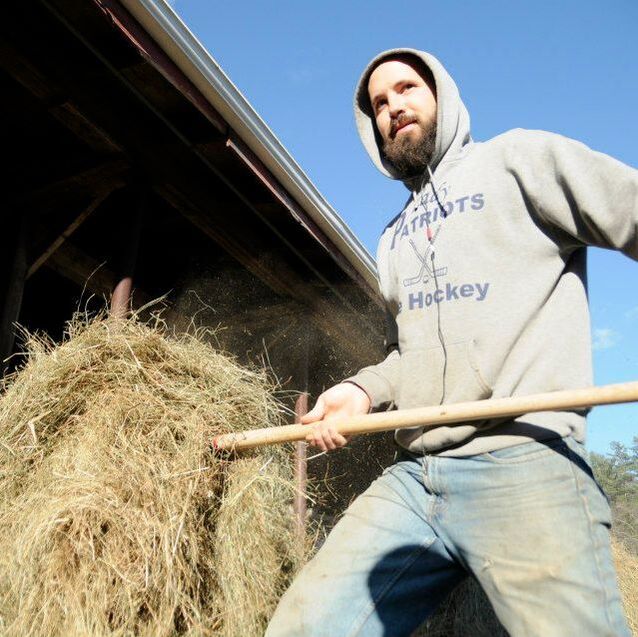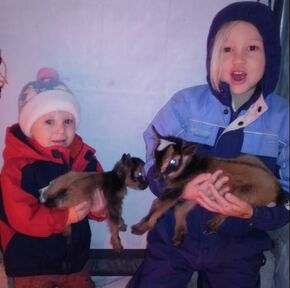Our farming journey began in a vegetable garden on Toria's parents' front lawn. After weathering the conflict of zoning board hearings over the appropriateness of a vegetable garden on a front lawn, we persevered and felt the deep rewards of growing our own food. We continued learning how to grow food through volunteering, internships and eventually through managing farm operations in both Pennsylvania and New Hampshire.
We were drawn to agriculture over a decade ago as a way to become more self-reliant. We have remained committed to farming because of the deep satisfaction we gain from the rewards of our labor. We have learned that being in the soil grounds us both physically and emotionally. A family member once told us that we talk about farming like a person who has found religion for the first time. It is our calling and lifeblood.
From the beginning, our passion has been for farming practices that improve the health of the soils from which our food grows. We feel strongly that the need for chemical inputs in agriculture stem from unsustainable farming practices. The more we support the health of our soils, the more the soil supports the health of our food crops. Additionally, we have no desire to expose ourselves, our children, our customers, or innocent wildlife to chemicals that are harmful to health and reproduction. While we are strongly dedicated to practices that go beyond what organic certification would require, we are choosing not to certify until we are on land that will be ours to farm long term. For now, we are on leased land that we use with care.
Why so humble?
The onset of the agricultural revolution transitioned humans from following the rhythms of nature to hunt and gather food to an attempt for full control over their food supply. While we implement sustainable farming practices in an attempt to work with natural systems, we are constantly humbled by the push nature has to restore the work we do back to wild order. Weeds have resilient tools for survival and reproduction; insects have a determined way of finding the leaves and roots they love to eat; the weather is ever changing and always unpredictable. The work we do is varied, exhausting, endlessly rewarding and constantly humbling.
We were drawn to agriculture over a decade ago as a way to become more self-reliant. We have remained committed to farming because of the deep satisfaction we gain from the rewards of our labor. We have learned that being in the soil grounds us both physically and emotionally. A family member once told us that we talk about farming like a person who has found religion for the first time. It is our calling and lifeblood.
From the beginning, our passion has been for farming practices that improve the health of the soils from which our food grows. We feel strongly that the need for chemical inputs in agriculture stem from unsustainable farming practices. The more we support the health of our soils, the more the soil supports the health of our food crops. Additionally, we have no desire to expose ourselves, our children, our customers, or innocent wildlife to chemicals that are harmful to health and reproduction. While we are strongly dedicated to practices that go beyond what organic certification would require, we are choosing not to certify until we are on land that will be ours to farm long term. For now, we are on leased land that we use with care.
Why so humble?
The onset of the agricultural revolution transitioned humans from following the rhythms of nature to hunt and gather food to an attempt for full control over their food supply. While we implement sustainable farming practices in an attempt to work with natural systems, we are constantly humbled by the push nature has to restore the work we do back to wild order. Weeds have resilient tools for survival and reproduction; insects have a determined way of finding the leaves and roots they love to eat; the weather is ever changing and always unpredictable. The work we do is varied, exhausting, endlessly rewarding and constantly humbling.


